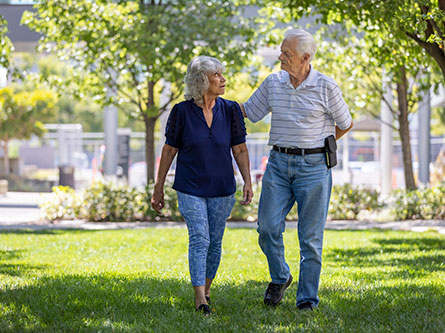Lung cancer is by far the deadliest cancer for men and women. The American Cancer Society predicts more than 230,000 Americans will be diagnosed this year. Nearly 130,000 will die from the disease.
The challenge is that most people don't know they have early stage lung cancer when it's still treatable. Screening for lung cancer is critical to catch the disease early when there are no symptoms. However, relatively few people get screened, which is a major reason lung cancer takes so many lives.
Nationally, the American Lung Association reports that only about 6% of people who are eligible get screened. In California, this statistic is even worse: Only about 1% of those eligible get screened. In fact, California has the lowest lung cancer screening rate in the country.
Lung cancer screening is simple and easy
Cigarette smoking is linked to at least 80-90% of lung cancer deaths, according to the Centers for Disease Control and Prevention (CDC). Federal guidelines make it easier for smokers and former smokers to meet insurance coverage criteria for low-dose CT scans.
The low-dose scans can detect lung cancer in its earliest stages. It takes less than five minutes to complete, and the scans don't require injections or blood draws. They're called "low dose" because the radiation delivered is far less than that of conventional CT scans.
Low-dose CT scans are painless, and patients don't need to remove their clothes or shoes. In many ways, low-dose CT scans are much easier than getting a mammogram.
Learn more about lung cancer risk factors, treatments and screening
Who is eligible for lung cancer screening?
Lung cancer screening is available to people in the following categories:
- Adults ages 50-80
- People who smoked at least a pack of cigarettes per day for 20 years
- Current smokers or those who quit within the past 15 years
Recently, the American Cancer Society recommended dropping the requirement that former smokers must have quit in the past 15 years.
If you fall in one of the categories above, talk to your primary care provider about getting screened for lung cancer.
Symptoms of lung cancer
During the late stages of the disease, lung cancer symptoms include:
- new cough that won't go away
- new wheezing
- coughing blood
- shortness of breath
- weight loss
- loss of appetite
- tired feeling
- hoarseness
Many patients diagnosed with lung cancer may have no symptoms.
Learn about our specialized lung cancer diagnosis and treatments
Why UC Davis is contacting patients for lung cancer screenings
UC Davis Comprehensive Cancer Center is taking action to address low lung cancer screening rates. We're reaching out to eligible patients and educating them about the importance of annual low-dose CT scans, if they qualify. The idea is to contact patients rather than wait for patients to contact their doctor's office, similar to how mammograms are scheduled.
New robotic procedures make life-saving diagnosis and removal of lung cancer possible during a single surgery. However, eligible patients still must be screened to detect lung cancer during early stages.
Get more information on other cancers from UC Davis Comprehensive Cancer Center




